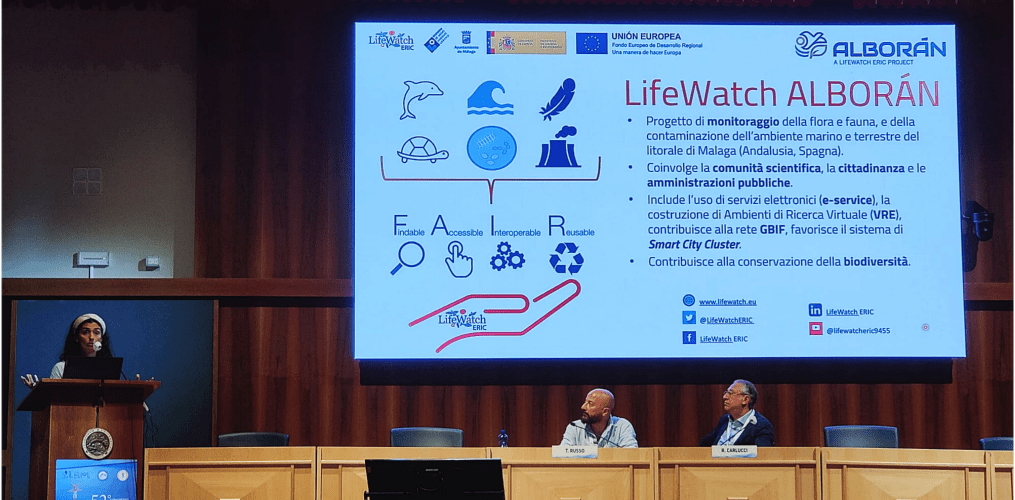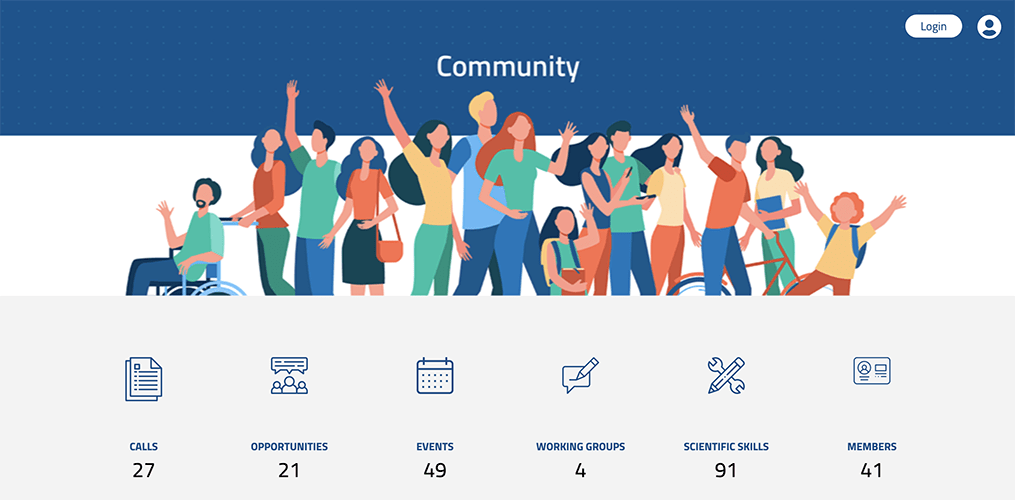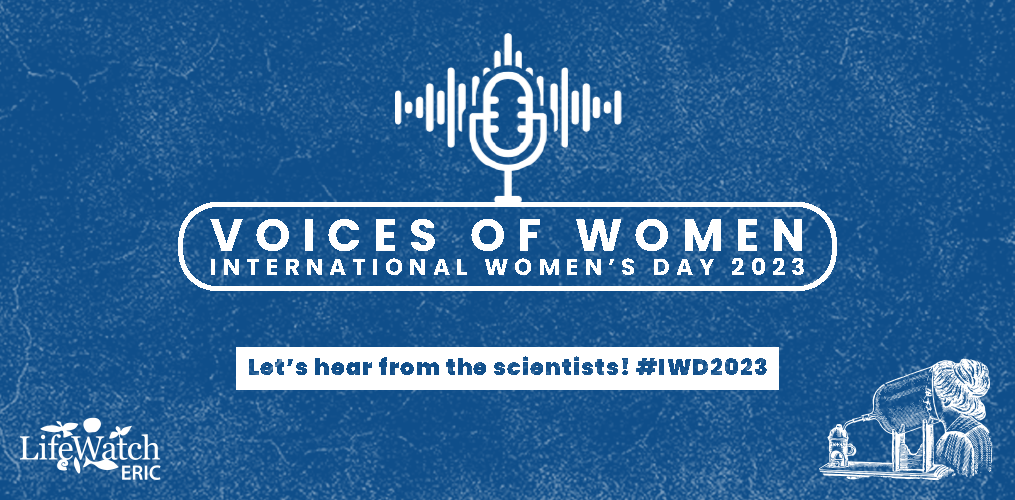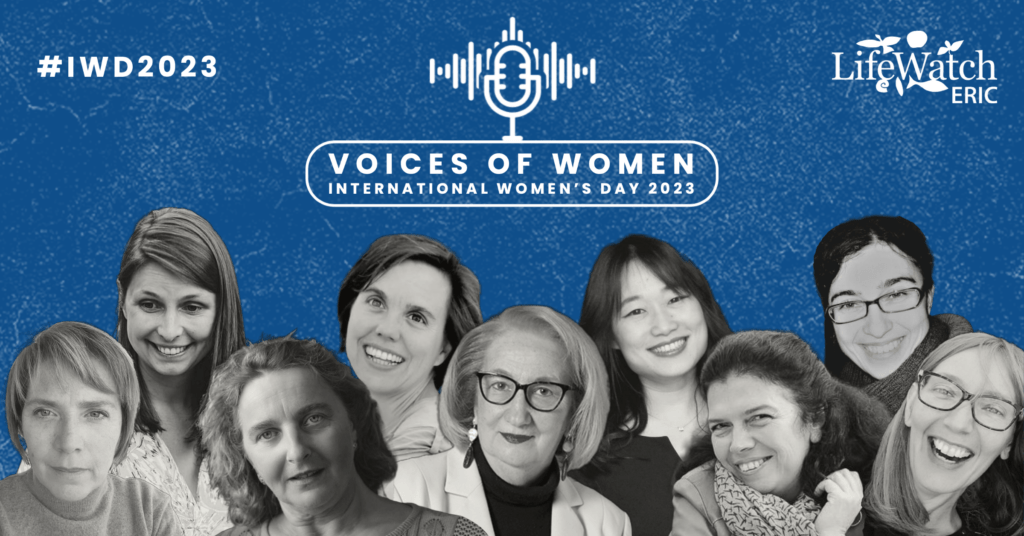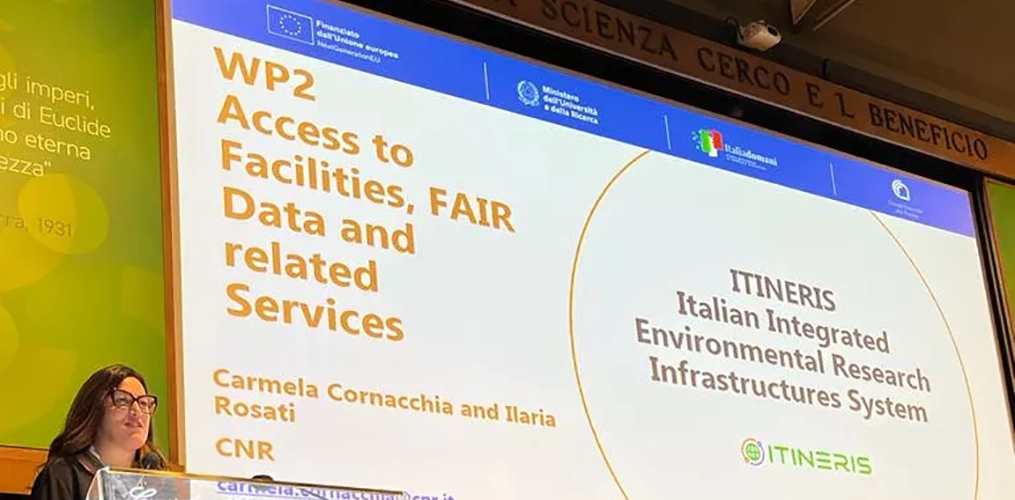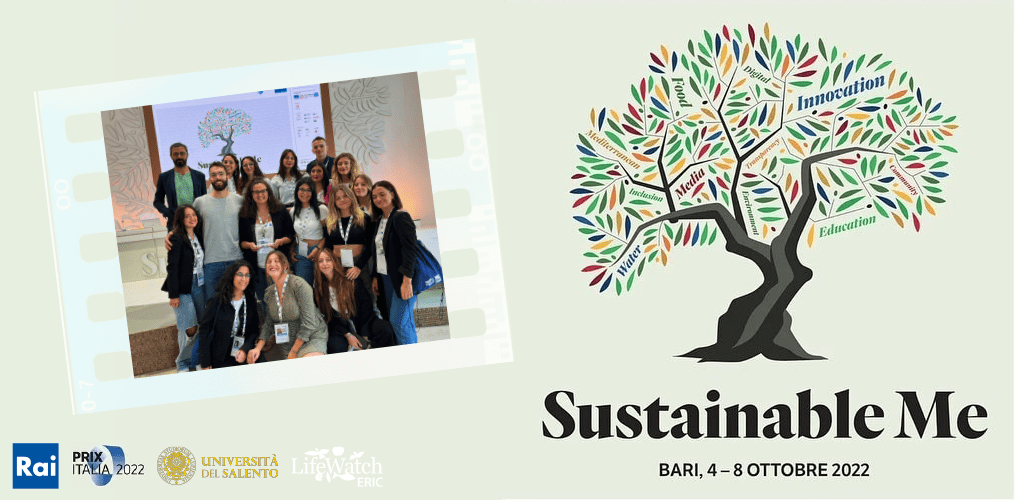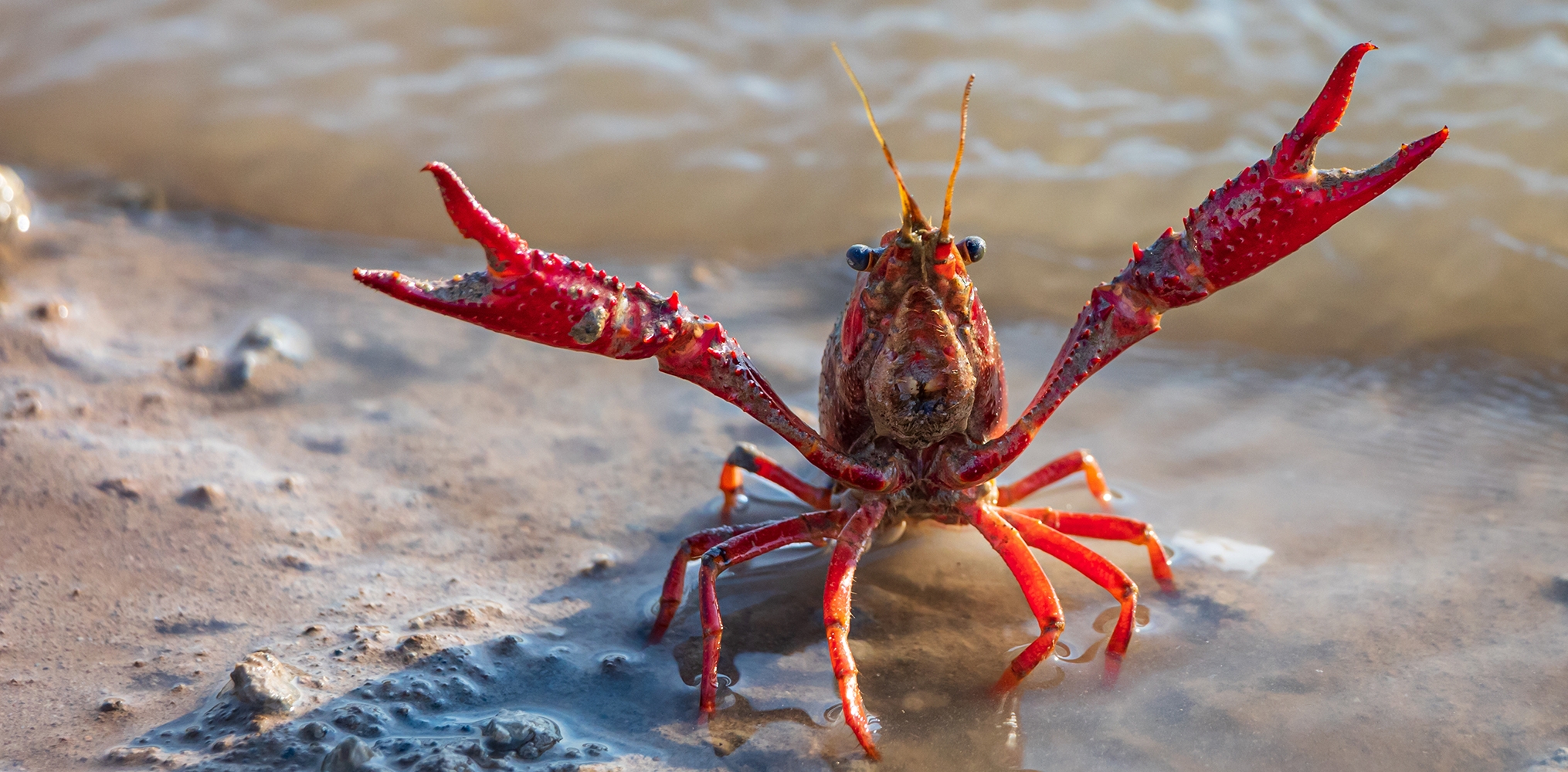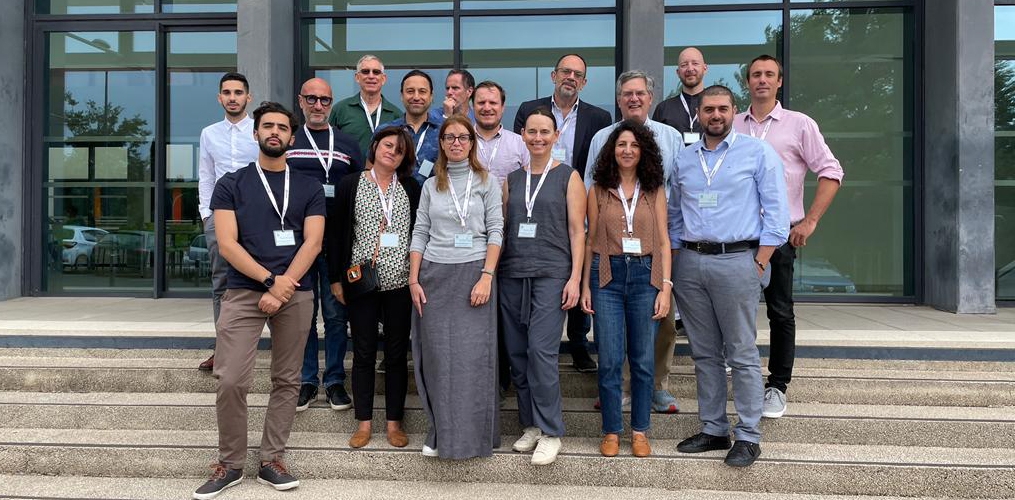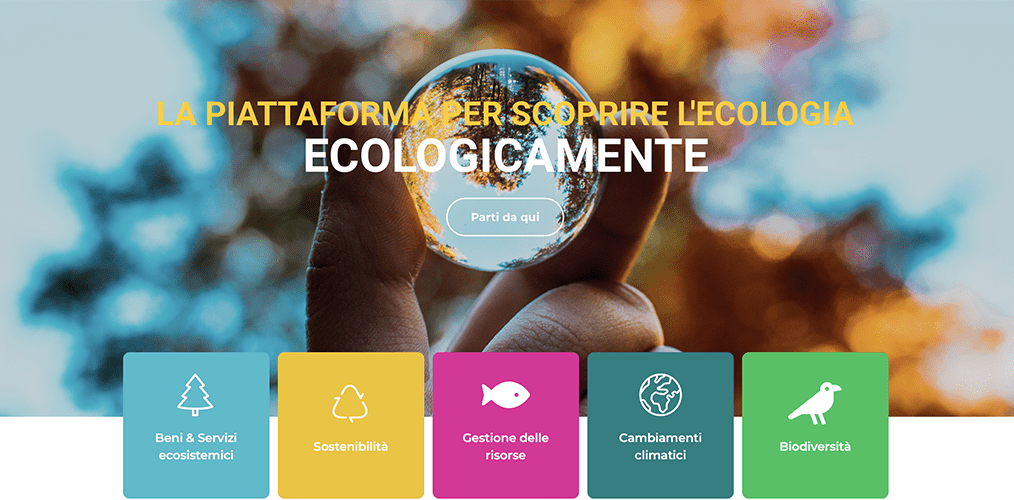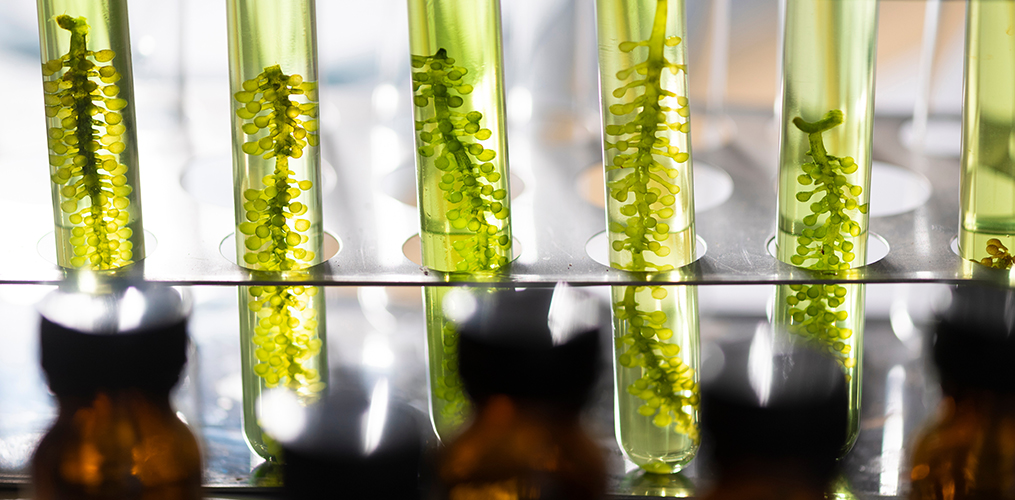Focused on sustainability, the 74th edition of the international Rai Festival of radio, TV and web productions took place from 4 – 8 October in Bari in southern Italy. The short film, realised by the students of University of Salento DAMS Filmmaking Laboratory in collaboration with LifeWatch ERIC, centres on the Blue Crab, an alien species that is increasingly replacing native species and changing the balance of the marine ecosystems in Europe.
Readers familiar with LifeWatch ERIC’s work will know that it spent its first five years focused on five validation cases on Non-indigenous and Invasive species in the development of its Virtual Research Environment. Students from the University of Salento, host of the LifeWatch Italy node and LifeWatch ERIC Service Centre, chose one of these validation cases as the premise for their submission to the “Sustainability” category of the Prix Italia festival this year: the infamous Blue Crab (Callinectes sapidus).
This year’s theme being sustainability, students of the DAMS course quickly accepted Rai’s invitation to participate in the festival’s YLAB challenge, with a documentary made in collaboration with LifeWatch ERIC, the infrastructure’s Multimedia Production Centre and the Master’s course e-Biodiversity and Ecosystem Sciences (EBES). The short film centres on the Blue Crab, an alien species that is increasingly replacing native species and changing the balance of the marine ecosystem in Europe – a focus for research supported by LifeWatch ERIC. It was produced by the University of Salento DAMS Filmmaking Laboratory under the technical supervision of Emiliano Carico by students Martina Di Noi, Immacolata Parisi, Mirko Clemente, Gaia Pascali, Federica Gianfreda, Alessia Merico, Valentina Capone, Cosimo Micelli, Stefania Bocco and Giorgia Chirico.
The students’ creative efforts paid off during the award ceremony at the Kursaal Theatre on Friday 7 October, where “The Blue Crab” won the YLAB challenge prize! To learn more about the effects of the Blue Crab in Europe, read the paper published in the Biodiversity Data Journal “An individual-based dataset of carbon and nitrogen isotopic data of Callinectes sapidus in invaded Mediterranean waters”.
Following this success, DAMS student Mirko Clemente went to the Italian Alliance for Sustainable Development (ASviS) Festival in Rome on Thursday 20 October to present the winning documentary in the session “Sustainability, Culture and Communication”. The aim of the Festival is to spread awareness about sustainability, make sustainable development a topical issue and draw national and local attention to the problems and opportunities related to the achievement of the SDGs (Sustainable Development Goals of the 2030 Agenda). The videos will soon also be broadcast on Sky.
Watch all the entries now on the LifeWatching Science Channel!
Il granchio blu (in Italian)
Our Earth, Our Home
Sonata breve (in Italian)
About the Prix Italia Festival
The 74th edition of the annual international Festival of radio, TV e web productions took place, organised by the Italian channel Rai, from 4 – 8 October in Bari in southern Italy, with the title “Sustainable Me”. Founded in Capri in 1948, the festival grows in influence each year, with 13 new members participating in the Prix Italia for the first time in 2022, among these Public Service broadcasters of Algeria, Bulgaria, Cameroon, Chile, Cuba, Jordan, Peru and the territory of Kosovo. This time round, the productions entered in the shortlists came from 31 different broadcasters and 23 different countries. Sixty-for competing products were selected by 86 jurors from the 321 works presented: 155 television programmes, 94 radio and 72 web projects. More than just a competition, Prix Italia is a celebration of creativity, with the three days full of conferences, shows, webinars and masterclasses, presented by a variety of international talents and attended by representatives from the UN, the Executive Board EBU (European Broadcasting Union) alongside the most noteworthy European broadcasters.
